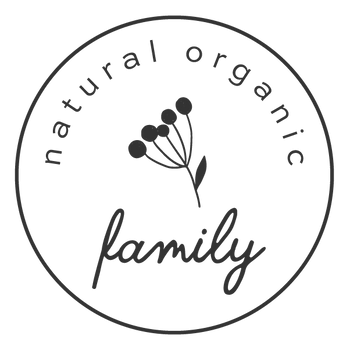How Organic Farming Benefits Your Skin (and the Planet)

When you choose organic skincare, you support a system that nurtures both your skin and the Earth. Organic farming sets strict limits on synthetic chemicals, and that creates a ripple of benefits—cleaner ingredients, healthier soil, fewer toxins and a gentler touch for delicate skin.
Cleaner Ingredients, Gentler Skin
One of the clearest advantages of organic farming is the elimination or drastic reduction of synthetic pesticides, herbicides and fertilisers. These chemicals often leave trace residues on plants, which can end up in skincare ingredients. For people with sensitive or reactive skin—especially children or teens—those residues can trigger irritation or inflammation.
By contrast, organic farming prioritises natural methods: crop rotation, composting, biological pest control and careful soil management. The outcome is raw material that is freer of chemical stressors, making it less likely to provoke redness or imbalance in skin.
Moreover, plants grown organically tend to produce higher levels of beneficial compounds—antioxidants, phytonutrients and vitamins—that serve as natural protectors. When these compounds go into skincare, they help defend skin cells against free radicals, support repair and maintain healthy glow.
Healthier Soil, Deeper Benefits
Organic farming does more than avoid chemicals. It deliberately rebuilds soil quality, increases biodiversity and reduces erosion. Dense, living soil stores carbon, retains moisture and sustains beneficial microbes.
These healthy soils foster stronger, more resilient plants. Robust plants are less stressed, so they produce more of the compounds that nourish skin. In skincare formulas, this translates to ingredients with more vitality—leaf extracts, seed oils, botanical actives that are rich and balanced, rather than depleted.
In short, when Earth thrives, the raw materials we extract for skincare flourish too.
Lower Toxin Exposure, Safer Use
Many conventional farming practices rely on persistent chemicals. Some wash into water systems, linger in soil or bioaccumulate. Over time, humans ingest or absorb tiny amounts—even from skincare.
Organic farming drastically reduces this exposure. With fewer synthetic agents in the supply chain, organic skincare helps minimise the cumulative chemical load your body absorbs. That matters for long-term health, especially for families who care about clean and mindful living.
Better for Wildlife and Ecosystems
Choosing organic is also a vote for biodiversity. Pollinators, insects, birds and soil organisms benefit when chemical use is limited. Clean waterways, buffer zones and plant diversity create healthy habitats.
Protecting ecosystems means preserving the delicate balances that support food chains, natural pest control and climate regulation. That broader benefit circles back to humans and our skin. Healthy ecosystems mean cleaner air, less pollution and fewer ecosystem-stressors that can harm skin health.
A Sustainable Choice That Fits Your Values
Organic farming often emphasises fairness—fair pay for farmers, ethical land use and long-term stewardship rather than short-term gain. By supporting organic brands and businesses, you encourage value systems that prioritise health over cost cutting.
At The Natural Organic Family we believe caring for skin means caring for the Earth simultaneously. You can explore our full range of thoughtfully sourced, clean formulations by visiting our homepage.
By choosing products grounded in organic farming, you gain richer, gentler ingredients for your skin and reinforce practices that restore soil, protect wildlife and nurture communities. That synergy—skin and planet in harmony—is worth investing in.
FAQs: How Organic Farming Benefits Your Skin and the Planet
1) What makes organic farming different for skincare ingredients?
Organic farming avoids most synthetic pesticides and fertilisers and uses natural methods like crop rotation and compost. This leads to cleaner plant extracts for skincare.
2) How does organic farming help sensitive or reactive skin?
With fewer chemical residues in the supply chain, organic ingredients are less likely to trigger redness, dryness or irritation.
3) Do organically grown plants have more skin friendly nutrients?
Plants under careful organic cultivation often contain robust levels of antioxidants and phytonutrients that help defend skin from everyday stress.
4) Why is healthy soil important for skin benefits?
Living soil supports stronger plants. Strong plants yield richer oils and extracts, which can translate into more nourishing skincare.
5) Does organic farming reduce toxin exposure for families?
Yes. By limiting synthetic chemicals, organic systems help lower cumulative exposure from everyday products, including skincare.
6) How does choosing organic help wildlife and water quality?
Reduced chemical runoff supports pollinators, soil organisms and cleaner waterways, which strengthens local ecosystems.
7) Is organic skincare always fragrance free?
Not always. Organic relates to how ingredients are grown. Families with sensitive skin can still look for fragrance free or essential oil free formulas.
8) Is organic always better for every skin concern?
No single approach suits everyone. Many families find organic formulations gentler, but patch testing and a simple routine are still important.
9) How do I know if a product uses organic ingredients?
Check labels for certified organic claims and read the ingredient list. Reputable brands provide sourcing information and clear transparency.
10) Where can I find thoughtful, family friendly products?
Visit the homepage to explore clean, carefully sourced options for the whole family.



